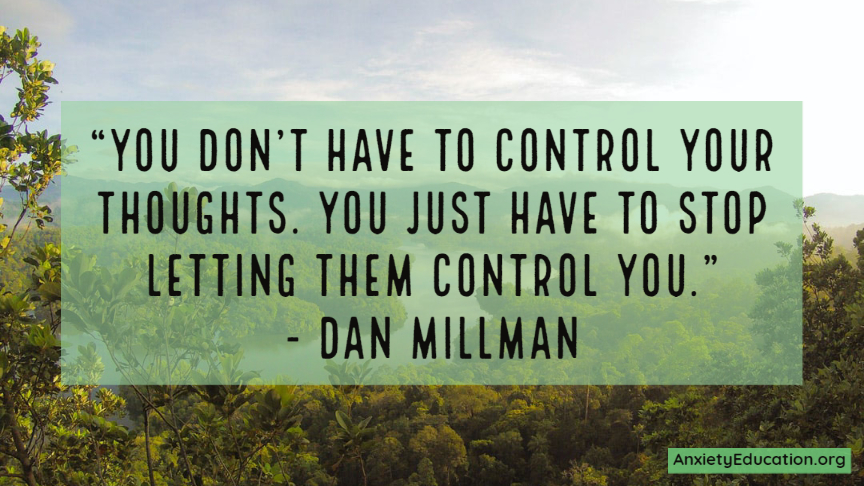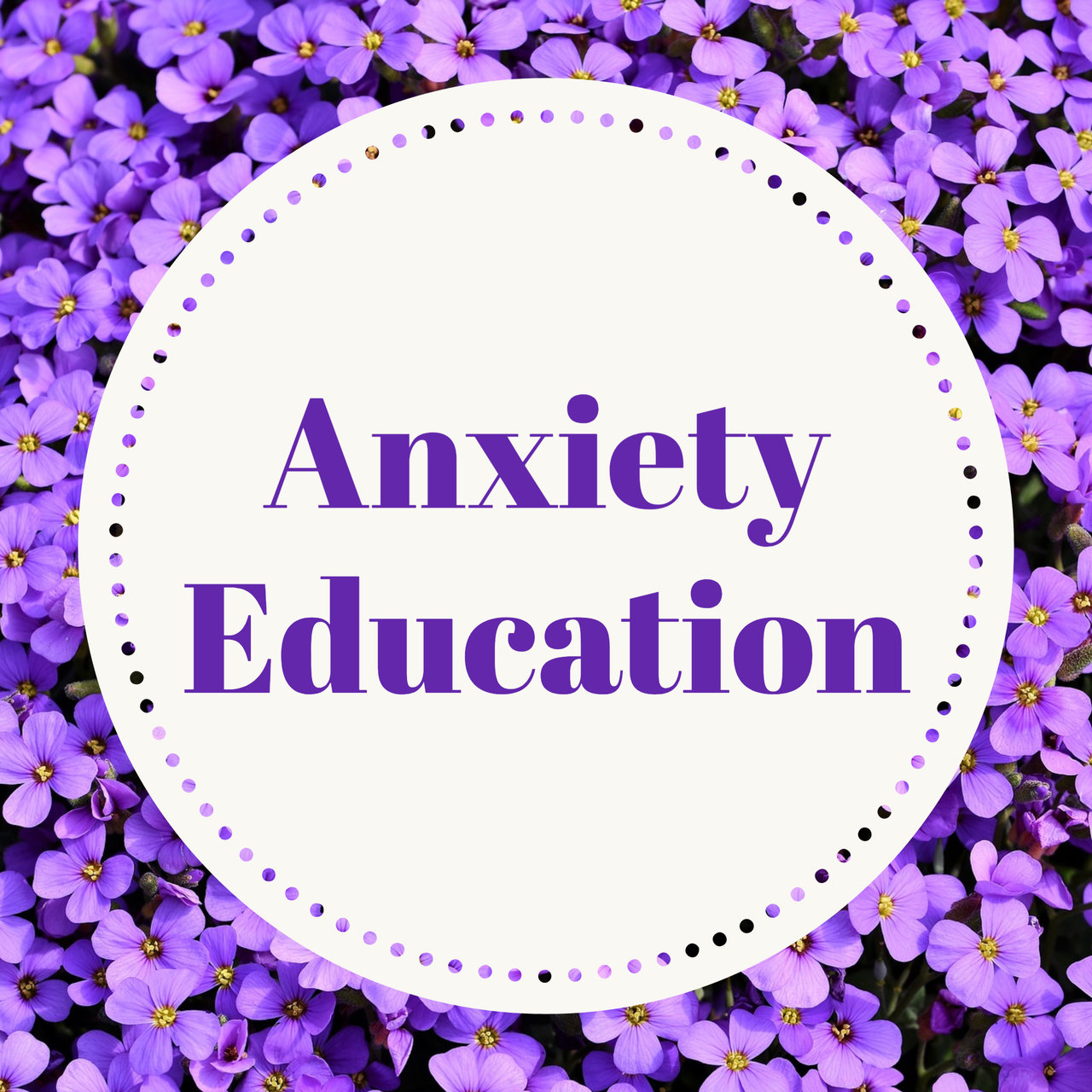
How to Manage Anxiety the Natural Way
Another morning comes and you wake up feeling exhausted. Events occur throughout the day that leave you feeling drained. Difficult situations fail to get easier, leading to worry. People once again fail to understand that you are facing internal struggles on top of the external pressures around you, and another day passes where nothing gets better. Many people struggle with stress and anxiety on a regular basis. Unfortunately, very few people know how to manage anxiety and the symptoms it causes. As events in the world grow more and more worrisome, an increasingly larger number of people suffer from stress-related issues such as insufficient sleep, agitation, changes in appetite, and other health issues. Fortunately, you can learn how to manage anxiety. Furthermore, there are natural ways you can manage stress in your daily life to decrease anxiety levels. This will help to allow people to enjoy life to the fullest extent.
Signs and Symptoms of Anxiety
Most people will experience anxiety at some point in their lives. To an extent, anxiety is a natural reaction to major life changes. These can include things such as moving, changing jobs, or changes in relationships. When the response to a stressful event becomes greater than the event itself, symptoms of an anxiety disorder could present and interfere with life progress. One of the main symptoms of anxiety is excessive worrying. While some worries are reasonable and natural, excessive worriers tend to focus on irrational fears, such as the “what if’s” of every situation instead of thinking through a logical response to the situation.
Worry Can Take Over If You Aren’t Careful
This worry response makes it difficult for people to focus on simple daily tasks. In addition, anxiety causes a feeling of agitation in response to triggers or situations simulating danger to them. Due to experiences or thought processes in their past, their sympathetic nervous system kicks in, sending them into ‘fight or flight’ mode, even if the present situation does not pose any threat of harm to them. Despite the harmless nature of the situation, the body’s physical response can include an overwhelming flood of sensations such as sweaty palms, racing heartbeat, dilated pupils, and shaky limbs, from which it may take up to a few hours to recover. Panic attacks tend to cause the same symptoms, as well as tightness in the chest, nausea, and an overwhelming sense of fear and of losing control.
Because of these difficulties, people with anxiety generally tend to function better outside of the social arena. They think more clearly with fewer people and distractions around. People with anxiety may experience irritability in response to slight, inconsequential inconveniences due to the unsettled state of their mind. Another symptom of anxiety is restlessness, feeling tense and ‘on edge’. This can be the external physical sign of one’s internal worrying.
Don’t Disqualify the Effects of Fatigue
Fatigue is another symptom of anxiety that can be worsened by excessive worry. Since people with anxiety often have trouble falling or staying asleep, fatigue is an expected outcome. People suffering from anxiety tend to have a difficult time concentrating because anxiety causes interruptions in forming memories. Often, intruding thoughts break concentration and prevent memorization from occurring. Upon recognizing any of the signs and symptoms of anxiety, one should take steps to reduce stress naturally and seek professional help if needed.
How to Deal with Anxiety Attacks
Anxiety can be debilitating. However, there are ways anyone can overcome it and live a fulfilling life. It starts in the mind. One of the hardest things for someone struggling with anxiety to do is to quit worrying. First, overthinking in any situation can never lead to happiness, but it may very well lead to an anxiety attack. The best way to manage anxiety would be to accept that not everything can be under your control. Although your situation might not currently be ideal, it is better to accept what you cannot change and get to work changing what you can. Secondly, don’t be a perfectionist. Perfection cannot be achieved in every situation. Try to avoid worry and low self-esteem by always doing your best and be proud of whatever progress you make.
Thirdly, do you tend to think more often like an optimist or like a pessimist? Make yourself aware of when negative thoughts creep in to ruin your day. Focusing on the positives in life will help drive worry away. Fourthly, learn what triggers certain signs of anxiety and watch your reactions to those situations. Whether it’s a deadline at work, a family issue, or some other stressor in life, make an effort to identify what it is that bothers you about that situation, and open up to a trusted friend or counselor about it. Writing it out or talking through your feelings about a certain trigger can help you avoid having a negative anxious reaction. If you pay attention to your reactions, you will likely be able to identify a pattern of thought processes and actions regarding certain situations and triggers.
In the Event of an Anxiety Attack
Knowing what affects you negatively and why it does will enable you to better manage your anxiety. In the event that you feel overwhelmed by factors you cannot control, the best treatment for anxiety may be to take a step back for a moment. First, take deep breaths to get your mind back under control. Then, count to ten if you need to, in order to focus on something other than the circumstances around you. Last, take time out of the day to practice relaxing through yoga, meditation, massage, or music in order to clear your head. You may need to reach out to someone you trust and be honest about how you are feeling. Whether it is a family member, a friend, a mentor, or an online counselor, there is always someone who is willing to listen and help you talk through your thoughts.

You Have Options When It Comes to Managing Anxiety
Sometimes the best anti-anxiety medication can be as simple as treating your body right. A body that does not get enough rest can cause the mind to be anxious and overthink, just as an unwell mind can cause physical damage to a previously healthy body. A healthy body requires good nutrition and sufficient rest. Eating well-balanced meals and not skipping meals will help fuel your body and your mind. Try to limit the amount of caffeine and alcohol you consume, as both substances can trigger anxiety.
Drinking a proper amount of water on a daily basis will help keep both your body and mind well balanced. Secondly, your body requires sufficient sleep in order to function properly. Especially when under stress, the body functions best with a regular amount of sleep daily. When proper sleep is withheld, fatigue can set in, weakening the mind’s defenses against negative thoughts. Thirdly, exercise is another important factor in maintaining physical and mental health. Even a mild exercise session can provide an energy boost and lift your mood dramatically, increasing the chances that you’ll have a positive mindset throughout the day.
Holistic Options May Be the Right Answer for You
If you prefer a more holistic approach, using a natural supplement such as kratom can also help soothe anxiety. Kratom, also known by its scientific name Mitragyna speciose, is a medicinal herb that comes from the leaves of an evergreen tree found in certain countries of South East Asia. Kratom is not an FDA approved substance and has not been thoroughly tested in clinical trials.; However, many people who use it claim to see positive effects in mood enhancement and in management of pain and stress levels.

Kratom is a naturally sourced mood enhancement supplement found to relieve stress. It can also improve sleep quality, reduce chronic pain, and act as an antidepressant. For those struggling with anxiety-related insomnia, kratom could improve both the quality and duration of sleep, leading to a more positive waking mindset.
Learning How to Manage Anxiety Can Give You Hope
Although it may seem like all hope is lost, there are always many different options available to someone struggling with anxiety. Keep an eye out for signs that your body is trying to tell you that anxiety is affecting your well-being. These signs might include a sudden increase in appetite and ‘nervous eating’, or a loss of appetite and nausea. Random sores on the mouth or other parts of the body can also be a negative reaction to stress. There are many signs and symptoms of anxiety, both physical and mental, but none that cannot be treated and helped. Anxiety should never be faced alone. Talk to someone you trust and learn to listen to what your body is trying to tell you. It can help you face stress with a smile and live life to the fullest.
